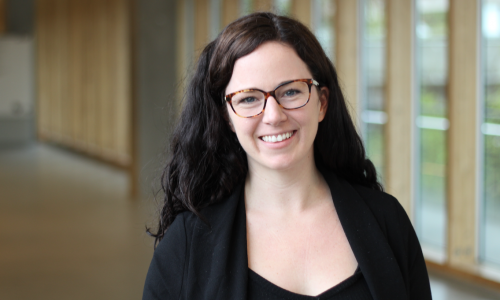
What’s your tolerance for risk? High? Moderate? Low? How do you compare to your peers in terms of risk tolerance? What do you consider risky behavior? There’s lots to choose from: casual hook-ups, drinking or smoking too much, trying new substances, putting your student loan money into the stock market. What about going on an international co-op? Would you consider that risky or a no-brainer? Risks students face on international co-op include profound loneliness, disorientation, being the target of unwanted attention, difficulty finding housing, getting lost, and running out of money. There are substantial rewards that offset these risks starting with the “wow factor” on your resume, gaining intercultural fluency, and learning how to work with the limitations of a foreign business environment. You can’t get this at home in the same way as in an immersive foreign experience. Nothing says “international competency” better than an international experience.
The truth is that only about 10% of SFU Co-op students venture outside of Canada for co-op. Why? Students tell us that cost is a major barrier: cost of living overseas, giving up their lease in Vancouver, airfare, visa applications, health insurance… the list goes on. We also hear “international co-op will extend my degree by too much time.” Money and time, the classic duo conspiring to keep 90% of co-op students at home, make it easy to explain why you can’t do international co-op. But what’s really going on? Could your reservation be more about your perceived risk of international co-op, or your tolerance for risk?
Why is risk taking relevant to employers? Because you build resilience when you learn to cope with risk and overcome it. If you’ve done an international co-op or exchange, there’s a good chance you’ve experienced profound loneliness and disorientation and if you’re still alive to tell the story, then you’ve lived through it and can do it again. Employers like people who are resilient and bounce back from uncertainty and hardship. For them, it translates to less hand holding, and greater resourcefulness, creativity and a “can do” attitude. Going international for co-op or exchange can transform you. You become a pioneer, a quiet leader, just by surviving an international experience.
In a survey done of SFU Business undergrads, students were asked to rate their tolerance for risk as very high, high, moderate, low and very low. Guess who reported the highest tolerance for risk? Students who completed an international Co-op work term. Second on the risk tolerance spectrum? Those who completed an international exchange. The lowest tolerance for risk showed up amongst those who completed neither, nor had any intention of pursuing either. This makes me wonder: did international experience make students more risk tolerant or is it only risk tolerant students who go abroad for Co-op and exchange?
Communications Co-op grad Kelly Furey writes in her OLC article, 5 Career Lessons I Learned From Stepping Outside my Comfort Zone, that she never would have grown had she stayed within the area of communications, which she loved. She took a chance and applied to a role as a Corporate Relations Manager, something that felt inherently uncomfortable and clearly came out stronger, more agile and with a wider view of where her career go take her than if she’d stuck to her comfort zone.
What about you? I challenge you to confront your inhibitions, and ask “what’s holding me back?” If it’s fear of the unknown, my advice is to name your fear, learn more about the real risks, and make an educated choice based on potential gains like those above rather than fear. It will say to prospective employers that you’re comfortable being uncomfortable. Put yourself in their shoes: who would you prefer to hire? Someone resilient and able to face uncertainty or someone who has always played it safe and stayed close to home? Be realistic. You know what your answer would be if you were shortlisting candidates for a job.
I invite you to connect with me on LinkedIn to talk about risk taking during your degree at SFU.
Thanks,
Tanya Behrisch, Manager, Business Co-op, SFU
Beyond the Blog
-
To learn about international opportunities available to you visit the International Co-op homepage.
-
Are you a Beedie Business student looking to expand your career options? Connect with the Beedie Co-op program, here.
-
Interested in learning more about risk and international experience? Read the first hand accounts of SFU students on international co-op, here.


















